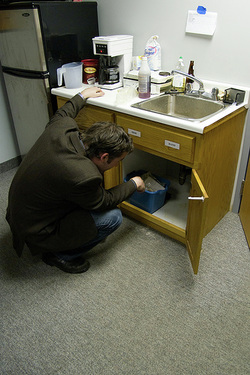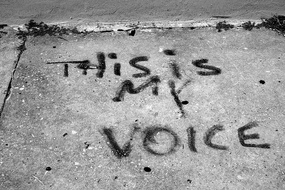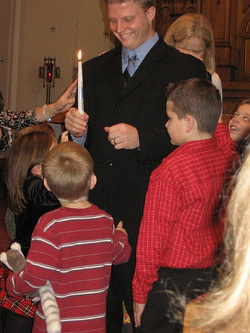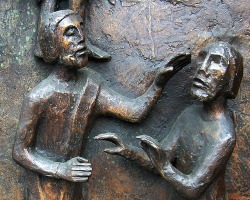Community Weaving is a family support network comprised of “Good Neighbors” who pool their resources to support one another and also self-organize community service initiatives. A “Good Neighbor” who was a bank employee asked a local plumber to be a “Good Neighbor” to break his daily routine, which kept him isolated from the community. She signed him up as a “Good Neighbor” and he offered $1,000 of in‐kind plumbing services. Two weeks later, a teacher called a “Community Weaver” about a student whose grandmother wasn’t able to afford plumbing repairs on leaky pipe. Plumber’s name came up on a database search and is contacted by the “Community Weaver” to fix the pipe. The plumber then volunteered to conduct a workshop on fixing leaky pipes to teens in an after school program. What did he learn? He was too skeptical about those in need and sometimes people really do need a helping hand. Cheryl Honey, founder of Community Weaving, has asked groups the following two questions for years:
1. Why don’t neighbors ask for help when they need it?
2. Why don’t neighbors offer to help others in need?
Psalm 31 answers these two questions and change attitudes so both the one in need and caregiver can benefit each other.
Trusting completely in God’s righteous character delivers you immediately from shame, disappointment and disillusionment. When Abram believed in God, it was accounted to him as righteousness (Ps. 31:1-2; Gen. 15:6).
God goes beyond the call to duty in looking out for your welfare. If you own something, you protect and care for it. As God’s own possession, He protects you from danger, guides you in His ways and most of all, redeems or buys you back from the power of sin (Ps. 31:3-5).
Anything you pursue or embrace apart from trusting God becomes an idol leading to emptiness and ruin. Idols can’t deliver because they are powerless. A caregiver can become an idol if a person in need places their hope in that person instead of God. In contrast, only the Lord our God cares about our situation fully. He uses people to meet practical needs of those in distress, grief and sorrow. God’s love even extends to those who make bad choices (sin) where they have no strength to help themselves (Ps. 31:6-10).
When people feel disgraced and undeserving, they believe the lie that says they are too unworthy to ask for help. As a result, their need goes unmet. In addition, evil powers of darkness can stir others up so the life of the one in need becomes miserable and full of terror (Ps. 31:11-13).
Caregivers become Christ’s hands and feet to reflect His love in meeting specific needs at the right time and in the right way (Ps. 31:14-15). The caregiver can use this as a teachable moment to pray and even offer testimony about our great Savior, Jesus Christ, as God leads him or her. Frequently, those in need get depressed (Ps. 30) because they don’t understand their identity in Christ as priest and king (Ps. 28) and are ignorant of God’s powerful credentials to bless them with peace (Ps. 29).
The following are reasons to love and trust in God:
1. Favor from God: if God is for you who can be against you (Ps. 31:16-17; Rom. 8:31)
2. Defeat lies: truth will make you free (Ps. 31:18; John 8:32)
3. Experience God’s goodness: His kindness leads you to repentance of sin (Ps. 31:19; Rom. 2:4)
4. Protection from conflicts: hide and lift you up in place of security (Ps. 31:20; 27:5)
5. Hear and answer prayers miraculously: nothing too difficult for God since He will bring the right resource (money or person) at the right time (Ps. 31:21-22; Gen. 18:14)
Love and hope in God because He always looks out for your best interests (Ps. 31:23-24).







